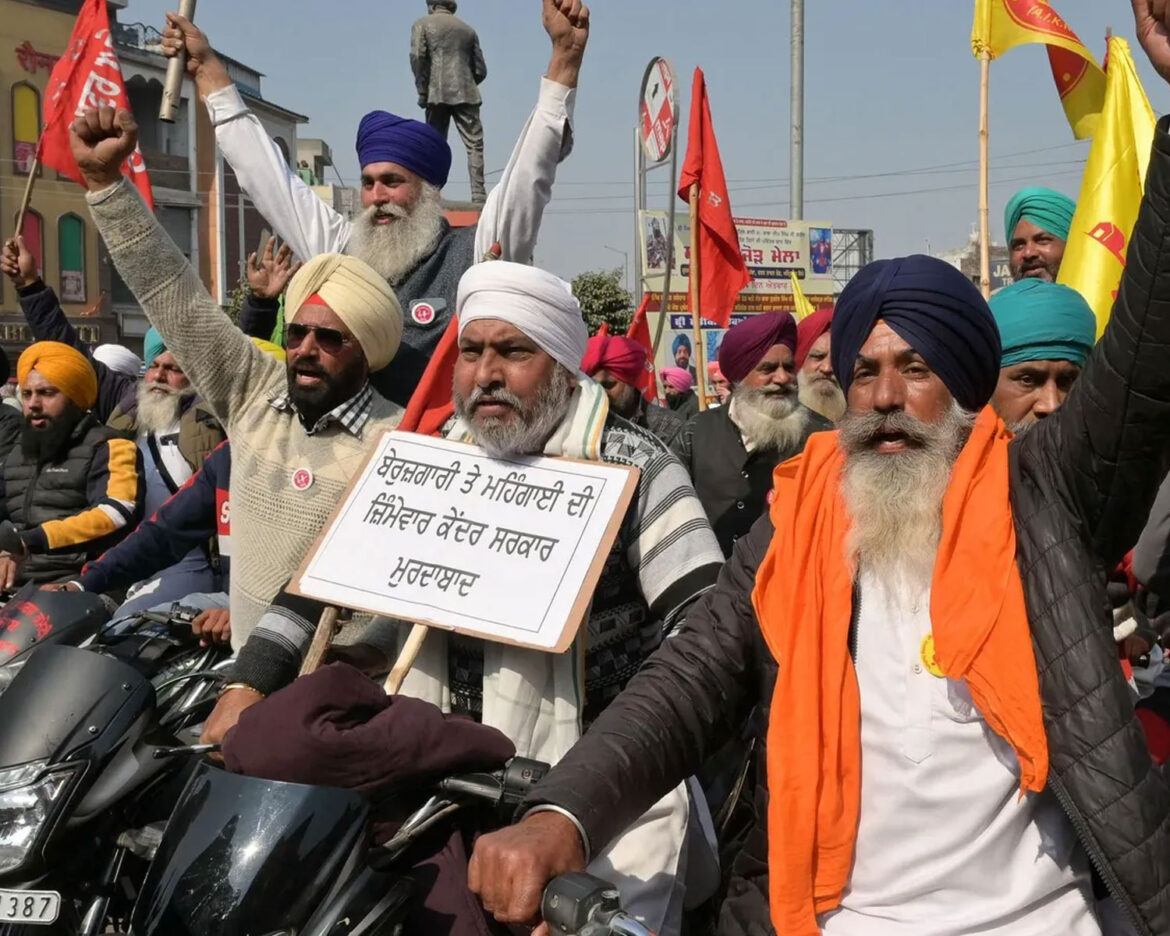Thousands of Indian farmers, equipped with cranes and excavators, are set to march towards New Delhi, the capital, after talks with the government over guaranteed prices for their produce failed to break a deadlock.
The farmers, primarily from the northern state of Punjab, have been demanding higher prices backed by law for crops such as corn, cotton, and pulses. This action, watched closely by security forces in riot gear, comes after farmers’ groups rejected a government proposal for five-year contracts and guaranteed support prices.
“We want to march to Delhi peacefully. If not, they should accede to our demands,” said one of the farmers’ leaders, Jagjit Singh Dallewal.
The march commenced from the border of Punjab state with Haryana, about 200 km north of Delhi, where authorities had previously stopped the farmers by erecting barricades on the highway.
Police in riot gear lined both sides of the heavily barricaded highway as farmers, amid morning fog, waved colorful flags emblazoned with their union symbols. Some were seen wearing gas masks, prepared for potential tear gas, which police have used in the past to disperse protesters.
Late on Tuesday, the Haryana police chief ordered the immediate seizure of heavy equipment brought by the farmers to prevent its use in destroying barricades. Owners of such equipment were also cautioned against lending or renting it to protesters, as its misuse against security forces would constitute a criminal offense.
The recent government proposal of minimum support prices for farmers who diversify their crops was rejected by protesters, who demanded additional food grains to be covered.
Agriculture Minister Arjun Munda urged farmers to maintain peace and rely on government talks to resolve grievances. “Through conversation, a solution will surely come out,” he stated.
These protests echo similar demonstrations two years ago, which led Modi’s government to repeal a set of controversial farm laws after farmers camped for two months at the border of New Delhi. These farmers, an influential voting bloc, are asserting their demands ahead of general elections due by May.



